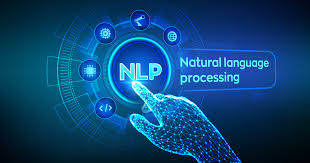Description
Introduction of AI Ethics and Governance
“AI Ethics and Governance: Navigating the Challenges of AI Implementation” is a comprehensive course designed to address the critical ethical and governance issues associated with the implementation and deployment of artificial intelligence (AI) systems. As AI technologies become increasingly integrated into various sectors, understanding the ethical implications and establishing effective governance frameworks are essential to ensure responsible and fair use. This course explores key ethical considerations, regulatory requirements, and best practices for managing AI projects. Participants will learn how to identify and mitigate ethical risks, promote transparency and accountability, and develop strategies for ethical AI governance.
Prerequisites of AI Ethics and Governance:
- Basic understanding of AI and machine learning concepts.
- Familiarity with data science and technology management.
- No specific prior knowledge of ethics or governance is required, though an interest in these areas is beneficial.
Table of Contents:
1. Introduction to AI Ethics and Governance
- 1.1 Overview of AI Ethics and Governance
- 1.2 Importance of Ethical Considerations in AI
- 1.3 Key Challenges and Objectives in AI Implementation
2. Ethical Principles in AI
3. Governance Frameworks for AI
- 3.1 Establishing AI Governance Structures and Policies
- 3.2 Roles and Responsibilities in AI Governance
- 3.3 Developing AI Ethics Guidelines and Best Practices
4. Regulatory and Compliance Issues
- 4.1 Overview of AI Regulations and Standards
- 4.2 Compliance with Data Protection Laws: GDPR, CCPA
- 4.3 Navigating Legal and Ethical Requirements in Different Jurisdictions
5. Transparency and Accountability in AI
- 5.1 Ensuring Transparency in AI Models and Decision-Making Processes
- 5.2 Techniques for Explainable AI (XAI)
- 5.3 Mechanisms for Accountability and Auditing AI Systems
6. Ethical Risk Management
- 6.1 Identifying and Assessing Ethical Risks in AI Projects
- 6.2 Strategies for Mitigating and Managing Ethical Risks
- 6.3 Case Studies of Ethical Challenges and Resolutions
7. Stakeholder Engagement and Communication
- 7.1 Engaging Stakeholders in AI Development and Deployment
- 7.2 Communicating Ethical and Governance Issues to Different Audiences
- 7.3 Building Trust and Ensuring Public Confidence in AI Technologies
8. Ethical AI Implementation
- 8.1 Integrating Ethics into AI Development Lifecycle
- 8.2 Designing and Implementing Ethical AI Solutions
- 8.3 Evaluating the Impact of AI on Society and Individuals
9. Future Trends and Challenges in AI Ethics
- 9.1 Emerging Trends in AI Ethics and Governance
- 9.2 Anticipating Future Ethical and Governance Challenges
- 9.3 Preparing for the Evolving Landscape of AI
10. Hands-on Workshop
- 10.1 Workshop 1: Analyzing Ethical Implications of a Case Study AI Project
- 10.2 Workshop 2: Developing an AI Governance Framework for a Hypothetical Project
- 10.3 Workshop 3: Designing Strategies for Transparency and Accountability in AI
11. Conclusion and Further Resources
- 11.1 Recap of Key Ethical and Governance Concepts
- 11.2 Resources for Continued Learning and Professional Development
- 11.3 Next Steps for Advancing Ethical AI Practices and Governance
Reference







Reviews
There are no reviews yet.